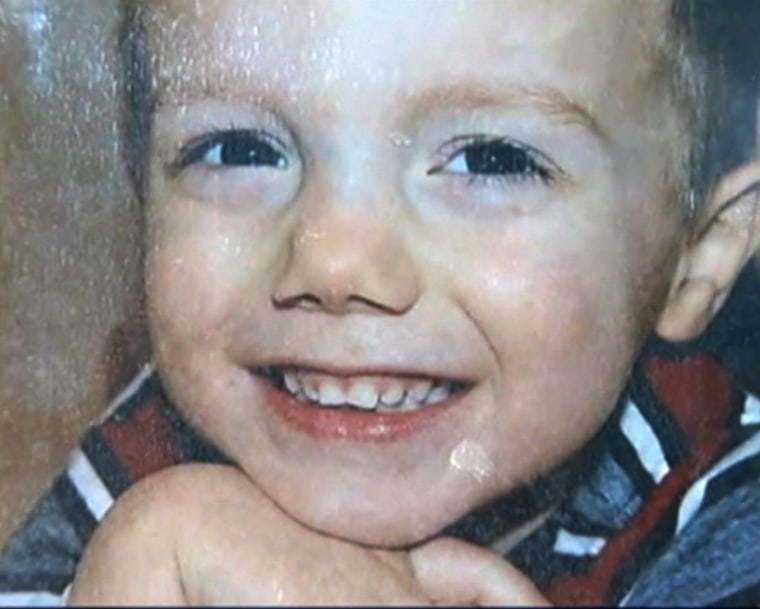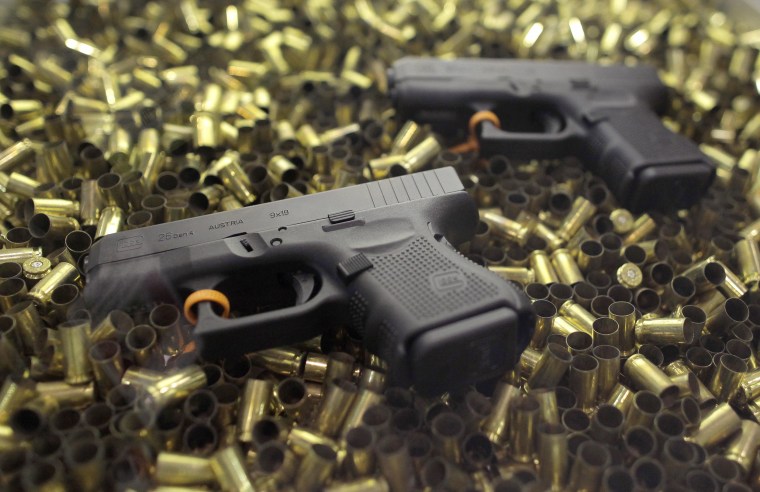When Kyrin Falcetti dropped her 4-year old son Cole off at the babysitter, she had no idea it would be the last time she’d see him.
One hour in, the young boy somehow got his hands on a loaded gun at the sitter's house and shot himself to death.
"I don't want to be burying my son," Falcetti. “He didn't do anything wrong."
Cole’s babysitter shared a home with her fiancé who is a sheriff’s deputy in training.
While the fiancé wasn’t home at the time and the unsecured weapon was not a service revolver, both are now facing felony child neglect and other charges for the May 15 incident.
"We would never think that they wouldn't secure their weapons. Ever. We trusted that they did," Falcetti said.
The sad reality is that Cole’s fate is not uncommon and thousands of children are injured or killed as a result of unsecured guns in homes, according to a new study that called the issue a “public health crisis.”
Research published this month by the Children’s National Hospital shows more than 4,500 kids under 21 were killed by firearms in 2015.

With more than 44 percent of U.S. homes now having a gun, the implications of carelessness could be dire, said Kavita Parikh, an associate professor of pediatrics in the Division of Hospitalist Medicine at Children’s National and lead author of the study.
Almost 40 percent of parents “erroneously believe that their children are unaware where weapons are stored, and 22 percent of parents wrongly think that their children have never handled household firearms,” the study revealed.
“I think parents have a false sense of security about having these firearms in their home and they believe that their children either don't know where they are or they've never accessed them,” Parikh said.
The research also pulled back the curtain on several more disturbing statistics regarding kids and guns.
"About 20,000 children are transported to Emergency Departments each year for firearm-related injuries," according to the study. And on average, "20 U.S. children and youths are hospitalized daily for firearm-related injuries and about 50 percent of the children who are hospitalized for firearm-related injuries are discharged with a disability."
In order to prevent these tragedies there need to be more conversations about gun safety — and pediatricians can play a vital role in that process, Parikh said. It can be thought of as the preventive medicine approach to any physical ailment.
“I think raising this as an issue, talking about it with our patients and families, asking about it to our patients and families and allowing them to also ask about it in their lives, empowers people to think about this issue and talk about it more,” she said
The study also offers several suggestions to prevent gun injuries.
For one, guns should have trigger locks and be kept in a safe, making it difficult to get within a child’s reach, the researchers noted.
And before a child visits a home, parents make sure to check to see how the other family secures any guns they have, Parikh said.
Kyrin Falcetti will always remember the day she got that ill-fated call about Cole.
And while it’s too late for her son, Falcetti said gun safety should be in the front of every parent’s mind to avoid a tragedy like hers.
“If there's a weapon in the house, if you’re going to leave your kid with that person then you need to make sure, every single time you drop them off, that the weapons are secure,” she said.
“And if that parent has a problem with that, don't leave your kid there."

